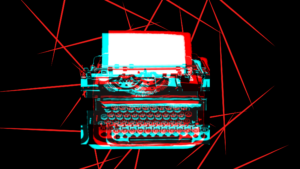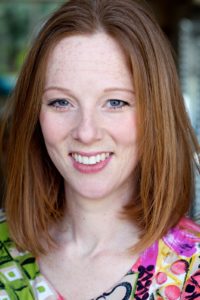 As the war draws to an end, Lee Miller, World War II reporter, isn’t ready to return home and surrender her career and the unlikely freedoms she has experienced as a woman on the frontline. Lee celebrates the amazing career of Lee Miller and explores the tensions between the liberty of life on the road and the horrors of war; as well as the lure and constraints of family life.
As the war draws to an end, Lee Miller, World War II reporter, isn’t ready to return home and surrender her career and the unlikely freedoms she has experienced as a woman on the frontline. Lee celebrates the amazing career of Lee Miller and explores the tensions between the liberty of life on the road and the horrors of war; as well as the lure and constraints of family life.
Sally Reichardt’s play, Lee, will be performed as part of the London Playwrights Festival this December at the Lion and Unicorn. Here, Sally shares her thoughts on writing the play…
“The first thing that struck me was the black heart, encased by a colourful plumage. Picasso’s portrait of Lee Miller at the entrance to the exhibition of her work and life at the Imperial War Museum, urged you to look past the archive of thoughtful, beautiful, witty photographs and appreciate the multi-layered complicated human that created them.
Most known as a World War II reporter for Vogue, the surrealist photographer, once model, later celebrity chef/hostess had an eventful and twisting life. A trailblazer for her generation, she was one of only a handful of US female war correspondents and the first woman to report from the front line, when faulty intelligence meant her arrival at St Malo accidentally coincided with a raging battle.
Throughout the IWM exhibition, it is obvious that Lee Miller wasn’t one to be held back. Her introduction to her mentor and lover Man Ray was by boldly inviting herself to be his apprentice. This is also the woman who, seeing her photographer friend in a US army uniform, marched herself down to Saville Row to get her own uniform made and get herself accredited to the US army. Lee Miller joined the allied advance on her own accord, offering content which shook-up the editorial policy at the time. Famously, Lee is well known for the image of her in Hitler’s bath with the mud of Dachau left by her boots on the mat. For me the audacity was electrifying and it was this image which I wanted to recreate on stage for an audience to share in the experience of being bewitched by her.
Despite the traumatic events of war, Lee Miller found it offered huge amounts of material for her art. Her photographs encapsulated the destructive/creative paradox of war and highlighted the surreal and absurd alongside the heart-break. It was intoxicating and empowering. The play explores what happens when the war is over, when the source of her emancipation dries up; does she go back to her partner, Roland, or continue chasing the lifestyle she thrived on?
Post-war, Lee’s life went through a seismic shift as she went on to be a mother and recreate herself in an entirely new image as celebrity hostess and chef. It is likely she was also suffering from undiagnosed PTSD. What I find curious about her story is that her son, Anthony Penrose, grew up with little to no knowledge of his mother’s photographic career and work as a war correspondent. It was as though she had drawn a curtain over her previous life, understandable given the horrors she had witnessed but I am also now aware from my own experiences, how much your identity morphs when you become a mother, and perhaps she couldn’t imagine these two identities existing alongside each other.
We rarely hear the stories of women during the war and her story is remarkable. As we know, women filled many of the male roles at home, while many of the men were fighting oversees. We are familiar with stories of women finding the possibility of careers and the war was a huge instigator of changing roles of women post-war. The experience of women during WW2 is mainly told through their roles on the home front whereas Lee followed the allied armies across Europe. In many ways she challenges our expectations of womanhood from the era. I feel we need to reshape how women are perceived throughout history, thereby helping us frame our modern experiences.
After I completed my first draft, I discovered that there is a major motion picture being developed about her life and work featuring Kate Winslett. The fact that there is a forthcoming blockbuster is credit to her family’s work in raising her profile and allowing more people to discover her remarkable story.”
 Sally Reichardt is a writer and actor from Hertfordshire, living in South London. Having trained in acting at East 15, she now enjoys writing and performing poetry and plays including Fruity Lil Number and co-writing Motion.
Sally Reichardt is a writer and actor from Hertfordshire, living in South London. Having trained in acting at East 15, she now enjoys writing and performing poetry and plays including Fruity Lil Number and co-writing Motion.
Lee takes place on Wednesday 8th December 2021 7.30pm at the Lion & Unicorn. Book here.
Find out more about the Festival line-up here.
Please support our Crowdfunding Campaign to help us create the festival!

